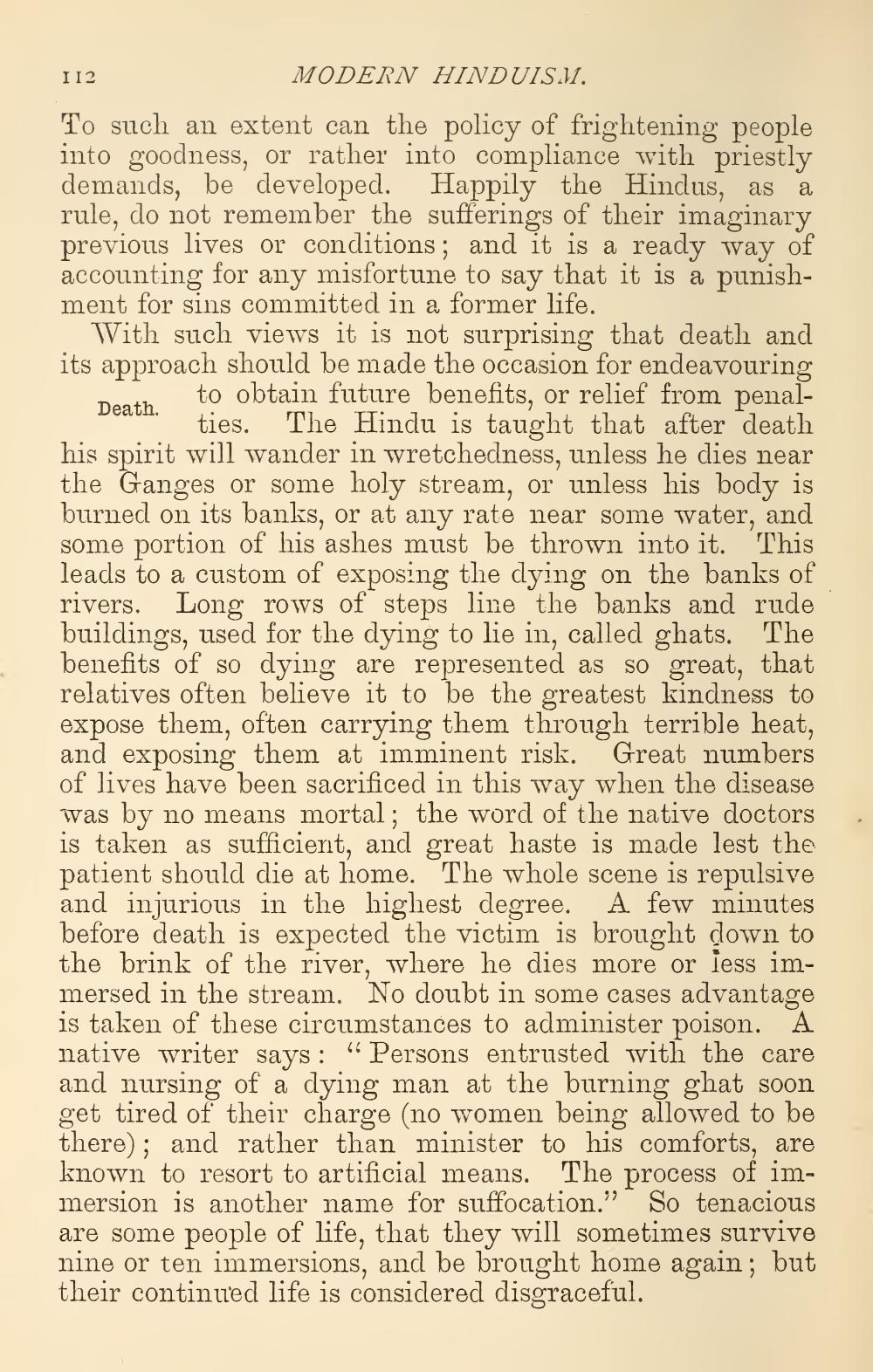________________
112
MODERN HINDUISM.
To such an extent can the policy of frightening people into goodness, or rather into compliance with priestly demands, be developed. Happily the Hindus, as a rule, do not remember the sufferings of their imaginary previous lives or conditions; and it is a ready way of accounting for any misfortune to say that it is a punishment for sins committed in a former life.
With such views it is not surprising that death and its approach should be made the occasion for endeavouring to obtain future benefits, or relief from penalDeath. ties. The Hindu is taught that after death his spirit will wander in wretchedness, unless he dies near the Ganges or some holy stream, or unless his body is burned on its banks, or at any rate near some water, and some portion of his ashes must be thrown into it. This leads to a custom of exposing the dying on the banks of rivers. Long rows of steps line the banks and rude buildings, used for the dying to lie in, called ghats. The benefits of so dying are represented as so great, that relatives often believe it to be the greatest kindness to expose them, often carrying them through terrible heat, and exposing them at imminent risk. Great numbers of lives have been sacrificed in this way when the disease was by no means mortal; the word of the native doctors is taken as sufficient, and great haste is made lest the patient should die at home. The whole scene is repulsive and injurious in the highest degree. A few minutes before death is expected the victim is brought down to the brink of the river, where he dies more or less immersed in the stream. No doubt in some cases advantage is taken of these circumstances to administer poison. A native writer says: "Persons entrusted with the care and nursing of a dying man at the burning ghat soon get tired of their charge (no women being allowed to be there); and rather than minister to his comforts, are known to resort to artificial means. The process of immersion is another name for suffocation." So tenacious are some people of life, that they will sometimes survive nine or ten immersions, and be brought home again; but their continued life is considered disgraceful.




